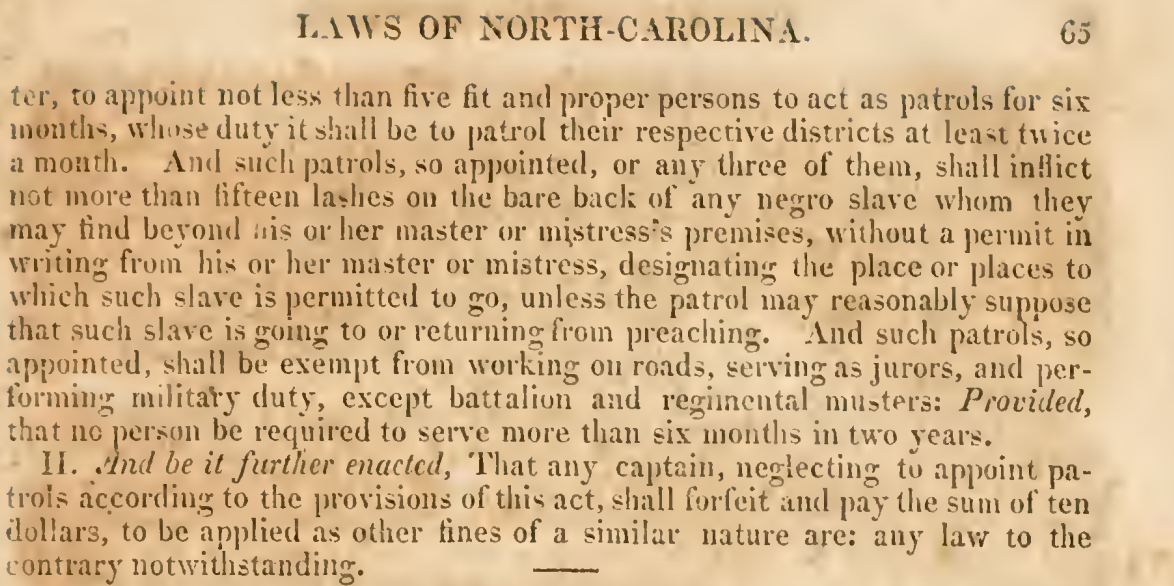This text is part of the Teaching Hard History Text Library and aligns with Key Concept 6.


CHAPTER CXV.
An act to regulate the patrol of Richmond county.
Be it enacted by the General Assembly of the State of North-Carolina, and it is hereby enacted by the authority of the same, That from and after the passage of this act, it shall be the duty of each captain of the several militia companies in the county of Richmond, at the first muster which they may respectively hold after the first day of January next, and every six months thereafter, to appoint not less than five fit and proper persons to act as patrols for six months, whose duty it shall be to patrol their respective districts at least twice a month. And such patrols, so appointed, or any three of them, shall inflict not more than fifteen lashes on the bare back of any negro slave whom they may find beyond his or her master or mistress’s premises, without a permit in writing from his or her master or mistress, designating the place or places to which such slave is permitted to go, unless the patrol may reasonably suppose that such slave is going to or returning from preaching. And such patrols, so appointed, shall be exempt from working on roads, serving as jurors, and performing military duty, except battalion and regimental musters: Provided, that no person be required to serve more than six months in two years.
II. And be it further enacted, That any captain, neglecting to appoint patrols according to the provisions of this act, shall forfeit and pay the sum of ten dollars, to be applied as other fines of a similar nature are: any law to the contrary notwithstanding.